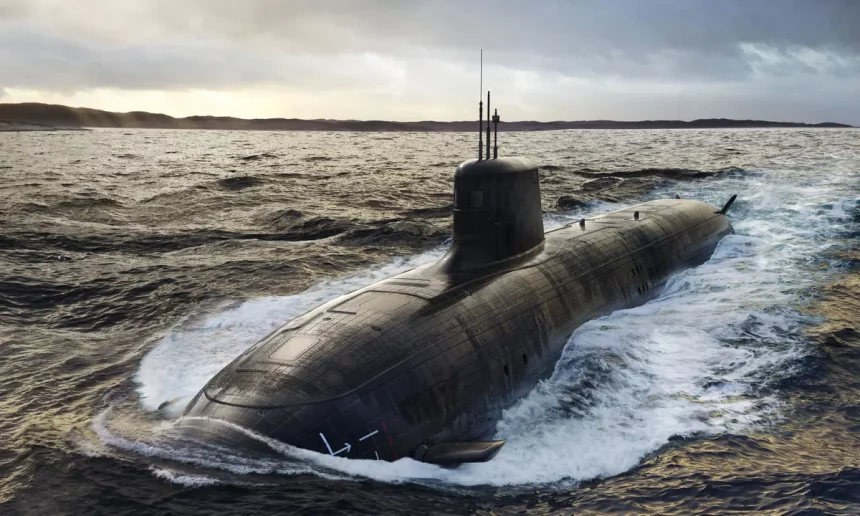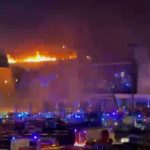Australia is set to provide 4.6 billion Australian dollars ($3bn) to British industry to help support the construction of nuclear-powered submarines under the AUKUS deal with the United Kingdom and the United States and ensure its new vessels arrive on time.
Senior officials from the UK and Australia, as well as the US ambassador to Australia, visited the naval shipyard where the submarines will be built in the South Australian city of Adelaide on Friday.
“The three governments involved here are working at pace to make this happen,” Australian Defence Minister Richard Marles told reporters at the Osborne shipyard where he was accompanied by his British counterpart Grant Shapps, as well as the foreign ministers of the two countries.
“This is going to happen and we need it to happen.”
Shapps said the submarine programme was expensive, but necessary.
“Nuclear-powered submarines are not cheap, but we live in a much more dangerous world where we are seeing a much more assertive region with China, a much more dangerous world all around with what’s happening in the Middle East and Europe,” Shapps told the Australian Broadcasting Corporation.
The announcement came a day after Australia and the UK signed a defence pact to better meet security challenges such as China’s increased activity in the South China Sea and the Pacific.
Australia, the UK and the US first announced the AUKUS trilateral security alliance in 2021 and revealed further details of how Australia would acquire the nuclear-powered submarines a year ago.
The 10-year plan will boost capacity at the UK’s Rolls-Royce factory in Derby where the nuclear reactors for the vessels will be built, while the submarines themselves will be constructed by BAE Systems in Adelaide, the state capital of South Australia.
The Virginia-class submarines will be primarily from a British design but will have a US weapons system on board.
Australia hopes to have eight nuclear-powered vessels in the water by the 2050s, a mix of the new AUKUS-class subs built at home and in the UK, and Virginia-class vessels purchased from the US.
Marles said a “drumbeat” of AUKUS-class submarines would then continue to roll off Australian production lines “every few years” in perpetuity.
“There is no country in the world which has obtained the capability to build nuclear-powered submarines, which has then turned that capability off,” he said.
“We will see submarines being produced here on an enduring basis.”
The nuclear-powered submarines will be quieter and stealthier than Australia’s existing diesel fleet, and capable of deploying over vast distances without surfacing.
China has claimed the AUKUS deal risks setting off an arms race in the Asia Pacific.
Beijing has stepped up its own military activities in recent years, modernising and expanding its armed forces, including its navy.
It has also become more assertive over its territorial claims in the disputed South China Sea where it has built artificial islands and reefs, and deployed its coastguard and maritime militia. The sea is also claimed all or in part by Brunei, Malaysia, the Philippines, Taiwan and Vietnam and Beijing has ignored a 2016 international court ruling that its claim on the sea had no legal basis.
Beijing has also become more assertive over its claim to the self-ruled democratic island of Taiwan.
On Friday, authorities in Taiwan said they had detected 36 Chinese military aircraft around the island over the previous 24 hours, the highest number in 2024.



